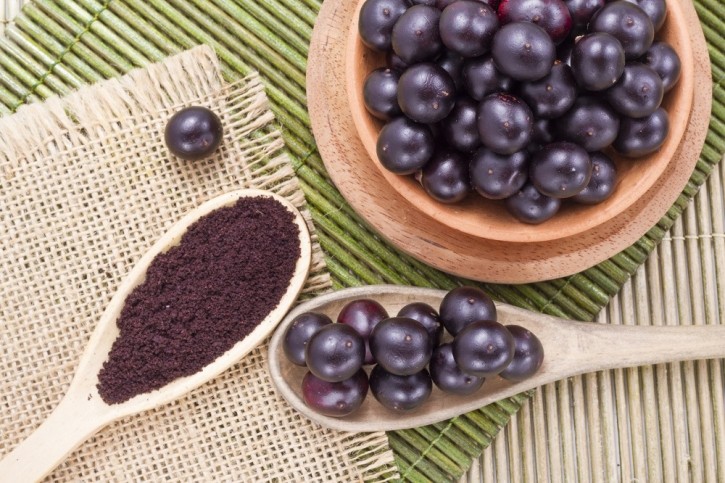Dietary anthocyanins linked to better artery health: RCT

Twelve weeks of açaí consumption led to significant reductions in pulse wave velocity (PWV), a measure of arterial stiffness, compared to a control group, according to findings published in Phytotherapy Research.
“Evidence shows PWV is a predictor of adverse cardiovascular events,” wrote researchers from the Institute of Cardiology of Rio Grande do Sul/University Foundation of Cardiology in Porto Alegre.
“A 1 m/s increase in PWV is associated with a 12% increase in cardiovascular risk. Progressive damage of the arterial wall leads to greater stiffness and, consequently, decreased vascular distensibility… We found a 0.6 m/s decrease in PWV in the [anthocyanin] group (based on 99% statistical power), which further supports the clinical importance of our dietary intervention.”
Amazonian superfruit
Açaí berries (pronounced ah-sigh-ee) have long formed part of the staple diet of Indian tribes. With the appearance of a purple grape and taste of a tropical berry, the berries have been shown to have powerful antioxidant properties thanks to a high level of anthocyanins.
Açaí pulp has been demonstrated to affect cell signaling, enzyme activity, maintenance of the oxidant and antioxidant balance, receptor sensitivity, gene regulation, and reduction in the production of pro-inflammatory cytokines, while restoring or maintaining functional cellular antioxidant status.
Study details
The new study included 55 obese and overweight people prescribed to individualized diet plans to reduce total energy intake by 20%. Half of the participants also received 200 grams per day of açai pulp (containing anthocyanins 293.6 mg and total polyphenols 1,370 mg).
After 12 weeks of intervention, the researchers found that all the participants experienced reductions in peripheral vascular resistance and body weight, with no differences between the groups.
In addition, no statistically significant changes were observed in either group for flow-mediated dilation (FMD), a measure of endothelial function.
“However, our results may suggest a clinically relevant in FMD parameters (>1% in the ATH group) that they should be addressed in future studies,” wrote the researchers.
Significant decreases in PWV were found in the açaí group, compared to the control (no anthocyanin) group.
“Increased inflammation in the adipose tissue of individuals with obesity contributes to increased arterial stiffness and increased blood pressure regardless of age,” wrote the researchers. “Dietary changes may reduce arterial stiffness, assessed by PWV, as seen in our study.”
Source: Phytotherapy Research
Published online ahead of print, doi: 10.1002/ptr.7659
“Dietary intake of anthocyanins improves arterial stiffness, but not endothelial function, in volunteers with excess weight: A randomized clinical trial”
Authors: T.O.P. Arisi et al.







